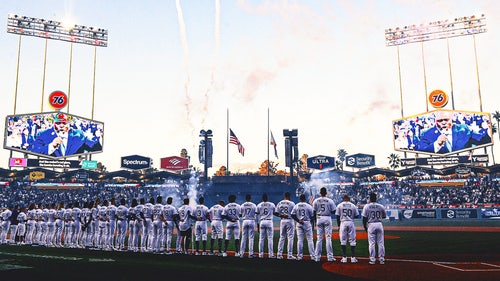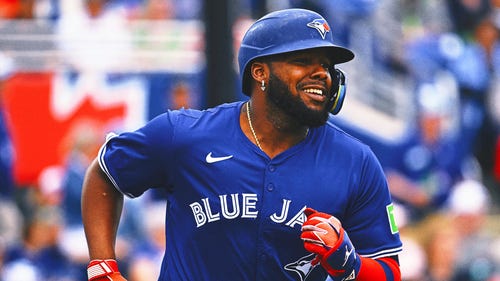
Right or wrong, Nats stand by decision
What I like about the Washington Nationals’ decision to shut down Stephen Strasburg is the same thing I don’t like about it.
Nats general manager Mike Rizzo is playing God.
Rizzo has been remarkably consistent in his position, saying from the start of spring training that Strasburg’s season will end once the pitcher reaches a unspecified point, believed to be between 160 and 180 innings.
Strasburg, 24, beat the San Francisco Giants on Wednesday, improving to 14-5 with a 2.91 ERA. He is now at 139 1/3 innings. But as Shutdown Day nears, Rizzo is not wavering.
I love that.
I love that Rizzo is bucking conventional wisdom and sticking to his beliefs amid growing criticism. I love that he is trying to protect Strasburg, who underwent Tommy John surgery in August 2010. And I love that Rizzo has built such a strong team, it’s quite possible that the Nationals could win the World Series even without their ace.
Here’s what I don’t love:
Rizzo might not be doing the right thing. There is no way to know if he is doing the right thing. The Nats could fail to win the Series this season. Strasburg could blow out next season. And then what would have been the point of all this?
The thing I don’t understand — the thing I have not understood from the start — is why the Nationals have refrained from aggressively manipulating Strasburg’s schedule, giving him as many breathers as possible, buying him time.
The team has done that to some degree — Strasburg has made 13 starts on the standard four days rest, seven on five days and four on six days or more. This is Strasburg’s first full season in the majors. Rizzo wants him to stay on a consistent schedule, develop a routine. Makes sense.
Rizzo, however, also has said that he did not want to shut down Strasburg for an extended period and then start him back up, again citing health concerns.
Makes less sense.
Teams often consider it something of a blessing when a workhorse suffers a midseason injury to something other than his arm — say, a strained knee. Obviously, no club wants a pitcher to get hurt. But you hear it from baseball people all the time — a break from the rigors of an every-fifth-day schedule can refresh a weary arm.
Let’s assume, for the sake of discussion, that Rizzo is correct — that a stop-and-start schedule would jeopardize a young pitcher who is building arm strength and finding his rhythm less than two years removed from Tommy John surgery.
Well, what would have happened if Strasburg had suffered a strained groin in May that sidelined for him a month? Would the Nationals have shut him down for the season rather than “risk” him resuming his normal routine?
No chance.
Juggling Strasburg’s schedule would have created another set of problems, potentially disrupting other members of the Nationals’ formidable rotation. But it would have beaten the alternative — the loss of Strasburg for the postseason.
The Nationals, though, aren’t even considering using Strasburg as a reliever in the playoffs, a move that would limit his innings at seemingly little risk. Nope, Rizzo is committed to his plan, with no deviations. Surely, he has considered every option. But here are the Nats, ahead of schedule, warranting less rigidity, more creativity.
The idea of an arbitrary innings limit remains difficult for many in baseball to fathom. Rizzo isn’t quite picking a set number — he has said he will use the “eye test” to judge Strasburg’s command, arm strength, etc. But if Strasburg gets extended beyond 180 innings, it will be an upset.
The Nationals took the same approach with right-hander Jordan Zimmermann a year ago, limiting him to 161 1/3 innings in his first full season coming off Tommy John. The plan worked brilliantly, and Zimmermann now is a contender for the NL Cy Young award. But every pitcher — and every circumstance — is different.
Strasburg, because of the violence of his delivery, could break down no matter how much the Nationals try to protect him. And the clock on him is ticking in a more tangible sense as well: Strasburg is not certain to be with the Nats forever, just for four more seasons after this one.
Four years is a long time, and if Rizzo is proved correct, the Nationals could win multiple titles during that stretch. But really, what are the odds? For all anyone knows, this could be the Nats’ year — this and none other.
The Nats’ 73-45 record is the best in the majors. Their rotation leads the NL in ERA. Their bullpen is deep and talented. And their offense, bolstered by the returns of the outfielders Michael Morse and Jayson Werth, ranks second in the NL in runs per game since the All-Star break — and should be even more potent once shortstop Ian Desmond comes off the disabled list.
Rizzo would argue, correctly, that the Nats are well-positioned for the future — their next wave of young talent includes infielder Anthony Rendon, right-hander Alex Meyer and outfielder Brian Goodwin. But tell that to some of the Nats’ veterans who are biting their lips, knowing they might not get this close again.
In the end, the Nats simply could be saving Strasburg for some other club. The pitcher would be a free agent at 28. His agent, Scott Boras, generally shuns long-term contract extensions, preferring his clients to determine their values on the open market.
OK, I’m getting ahead of myself. The Nationals’ players knew what was coming with Strasburg. Everyone knew what was coming. Rizzo issued his decree early and has stayed on message throughout the season. He’s not about to turn back now.
I love that Rizzo has the courage of his convictions.
I’m just not sure he’s making the right call.










